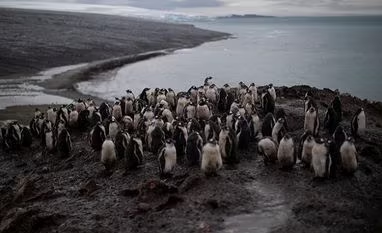World Penguin Day is celebrated worldwide on April 25 each year, coinciding with the northern migration of Adélie penguins toward Antarctica in search of food as the winter months approach.
When Gerry Wallace wrote the date on his wife's (Aleta's) calendar in Alamogordo, California, in 1972, the Day was first observed. Later, the celebration grew to include the Naval Weapons Center in Ridgecrest, California, where the Penguin Patrol attracted more attention.
The main focus of the day are Adélie penguins, which follow this pattern every year. In the winter, they move north for better access to food, and in the summer, they return to Antarctica's coastal beaches to nest.
World Penguin Day: History
World Penguin Day was established in large part thanks to McMurdo Station, an American research centre on Ross Island. Around this time each year, scientists there observed the Adélie penguins beginning their migration.
Subsequently, World Penguin Day arose as a way to honour this normal phenomenon and bring issues to light about these captivating animals. While at first focused on the Adélie penguin's migration, the day now celebrates all penguin species, revealing insight into their conservation status.
Among the around 17 recognised species, up to 10 are classified as endangered or weak by the International Union for Conservation of Nature (IUCN) with three considered closely threatened.
Penguin Day: Importance
Penguins, which spend up to three-quarters of their lives in the ocean and are extremely social animals, they get their food from the oceans. Pollution and overfishing pose the greatest threats to their survival. Environmental change is likewise a major issue for penguin species.
More From This Section
Their habitat, as well as the timing of their chick hatching and the availability of food, are all impacted by shrinking sea ice. World Penguin Day gives a chance to see the value in these special creatures and stand firm against the dangers they face. It is likewise an indication of the significance of safeguarding the sea and the climate for people in the future.
Lesser known facts about the penguins
• The average penguin duration is 15 to 20 years.
• Penguins can weigh between 2 and 88 pounds (0.9kgs to 40kgs).
• Penguins can swim up to 15 miles per hour but can't fly.
• Penguins can drink ocean water.
• Emperor Penguins are the tallest of the penguin species, standing up to 120cm tall but sizes may vary from 40 cms to 114 cms.
• Penguins eat a range of fish and other sea life that they catch underwater.
• Penguins can drink seawater.
• Penguins spend around half their time in water and the other half on land.
• Approximately two-thirds of all penguin species are taken as threatened and remain on the International Union for Conservation of Nature (IUCN) Red List.
• The Galapagos Penguin is the only penguin species that travels naturally north of the equator.
)